Arrested Pakistani LeT terrorist thanks Army for not killing him
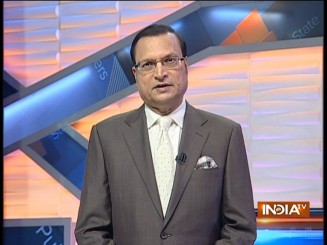 Pakistani Lashkar-e-Taiba terrorist, Aijaz Ahmed Gojri alias Abu Umair, arrested by security forces alongwith two of his associates in Baramulla district of Kashmir, has, in a video, thanked the army for not gunning him down. He has appealed to Kshmiri youths to give up arms and return to the national mainstream.
Pakistani Lashkar-e-Taiba terrorist, Aijaz Ahmed Gojri alias Abu Umair, arrested by security forces alongwith two of his associates in Baramulla district of Kashmir, has, in a video, thanked the army for not gunning him down. He has appealed to Kshmiri youths to give up arms and return to the national mainstream.
Aijaz was arrested alongwith two others in Baramulla district, after army gunned down three Lashkar terrorists in Chhatabal. The arrested terrorists were produced before the media on Wednesday in Srinagar. In the video, Aijaz says that he is alive because the army held fire during the encounter, and did not fire at him even as he himself fired at the jawans.
Catching terrorists alive is a big achievement for the security forces. They share important information about their group and provide vital clues about the line of thinking of their handlers. Four days ago, an assistant professor of sociology from Kashmir University, joined the last remaining terrorists of Burhan Wani’s group, and remained holed inside a house with them even as security forces appealed to him to surrender. Security forces called in his father and brother, who appealed to the assistant professor to surrender, but he was warned by terrorists that he would die if he went out and surrendered. He was advised to die fighting. The assistant professor toed the terrorists’ line and was ultimately gunned down.
I still hope misguided youths in Kashmir valley will listen to Aijaz’s appeal and return to their families after laying down their arms.
Click Here to Watch Video | Get connected on Twitter & Facebook
Stone pelters killing tourist is a shame on Kashmiriyat
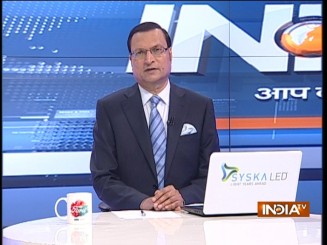 The death of a 22-year-old tourist from Tamil Nadu, R. Thirumani, due to stone pelting by a mob at Narbal on the Srinagar-Gulmarg highway on Monday has come as a shock to the tourism industry in Kashmir. In the stone pelting incident, two members of Thurmani’s family, including his mother, were also injured. Nearly half a dozen vehicles carrying tourists were attacked by stone pelters.
The death of a 22-year-old tourist from Tamil Nadu, R. Thirumani, due to stone pelting by a mob at Narbal on the Srinagar-Gulmarg highway on Monday has come as a shock to the tourism industry in Kashmir. In the stone pelting incident, two members of Thurmani’s family, including his mother, were also injured. Nearly half a dozen vehicles carrying tourists were attacked by stone pelters.
The people of Kashmir valley are known the world over for their excellent hospitality. Kashmiris always welcome tourists, and there had been not a single instance of violence against tourists till date. This unfortunate incident on Monday has come like a bolt of blue from the sky. Chief Minister Mehbooba Mufti and all senior political leaders have condemned this attack. Tourists provide the backbone to the tourism industry in the Valley. People who run shikaras, cabs and hotels in the Valley are dependent on tourists, while common people get employment in the form of guides and cab drivers.
Monday’s incident is a clear case of desperation on part of the militants, who work on directions from across the border. They should know that they are harming their own Kashmiri brethren by resorting to such senseless acts.
Click Here to Watch Video | Get connected on Twitter & Facebook
SC verdict quashing bungalows for ex-Chief Ministers a welcome step
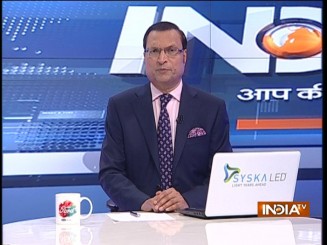 The Supreme Court, on Monday, in a scathing judgement quashed the law enacted in Uttar Pradesh allowing former Chief Ministers to retain their official bungalows. The apex court said, “a former chief minister is only a commoner and not a special class of citizen, who can enjoy privileges, perks and official bungalows at taxpayers’ expense for his entire lifetime.
The Supreme Court, on Monday, in a scathing judgement quashed the law enacted in Uttar Pradesh allowing former Chief Ministers to retain their official bungalows. The apex court said, “a former chief minister is only a commoner and not a special class of citizen, who can enjoy privileges, perks and official bungalows at taxpayers’ expense for his entire lifetime.
In its verdict, the apex court observed that the Constitution recognises only “one single class of citizens with one singular voice (vote)”. The exceptions to this rule, it said, is confined only for the protection of backward classes, women, children, SC/ST and minorities. “A special class of citizens is abhorrent to the constitutional ethos”, the court said. The apex court had expanded the petition to cover all the other states.
On the face of it, it seems strange that former chief ministers should be allotted official bungalows in the state capital for the rest of their lives. I want to cite one example. Ramnaresh Yadav was chief minister of UP for two years from 1977 to 1979. He became the Governor of Chhattisgarh in 2014. Later he was given charge of Governor for Madhya Pradesh, but he continued to retain his official bungalow in Lucknow.
Ramnaresh Yadav used to stay in the Bhopal Raj Bhavan, while his son used to stay in the official bungalow in Lucknow. Similarly, two former CMs father-son duo Mulayam and Akhilesh Yadav live in adjacent official bungalows in Lucknow. Former CM Mayawati went to the extent of amalgamating three government bungalows to make one official bungalow for her use. Former CMs Rajnath Singh and Kalyan Singh also retain official bungalows in Lucknow.
With the Supreme Court giving its verdict, all these former chief ministers will have to vacate their bungalows. I hope this will be enforced in other states too.
Click Here to Watch Video | Get connected on Twitter & Facebook
How a Bihar minister was instrumental in circulating fake news
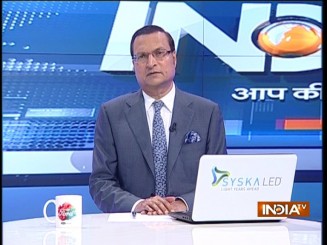
Aaj Ki Baat 4th May 2018
On Thursday evening, TV news channels showed visuals of an overturned passenger bus in flames in Motihari, Bihar, alongwith news that 27 out of the 32 passengers inside the bus had perished. What was the source? Bihar’s minister Dinesh Chandra Yadav, who cited ‘local sources’ and gave out this figure. Most of the new channes flashed this death toll and the Prime Minister and Chief Minister of Bihar sent out tweets condoling the deaths. A two-minute silence was observed at a meeting where CM Nitish Kumar was present, and the state government announced compensation.
Late in the night, it turned out that the death toll given out was false. There were hardly 13 passengers inside the bus, and all of them had escaped death. Meanwhile, another Bihar minister Nand Kishore Yadav blamed the media for giving out this figure. The fact is that the earlier minister had hurriedly given out the death toll figure, without verifying it. The minister did not wait for the final report and gave out the death toll figure.
On visual and digital media, the death toll was first given out at 27, it was then reduced to 12, and at around 8 pm, it was reported that six persons had died. I did not share this news on Aaj Ki Baat that night, because of doubts about the veracity of the death toll figure. I can understand the compulsions of the Prime Minister and Bihar Chief Minister, who went on Twitter, to offer their condolences. With the political temperature rising nowadays, the opposition could have blamed them for being insensitive, if they had not reacted fast.
On the whole, this development shows a mirror to the entire system within which leaders and bureaucrats function. Ministers in Bihar should henceforth practise caution before speaking out about death toll in tragedies. They should verify from reliable sources before giving out such figures. They should realize that the words of ministers and political leaders carry weight. I hope this will not be repeated in future.
Click Here to Watch Video | Get connected on Twitter & Facebook
Modi’s campaign seems to have changed Karnataka poll scenario
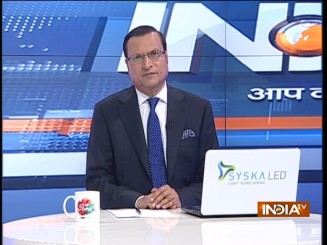 On Thursday, Prime Minister Narendra Modi addressed three rallies and sharpened his attacks on Congress and Chief Minister Siddaramaiah. Most of the opinion polls that were conducted till now in Karnataka had predicted a hung assembly, but these opinion polls were conducted prior to Modi’s poll campaign. BJP leaders in Karnataka now believe that Modi’s whirlwind campaign may change the entire scenario.
On Thursday, Prime Minister Narendra Modi addressed three rallies and sharpened his attacks on Congress and Chief Minister Siddaramaiah. Most of the opinion polls that were conducted till now in Karnataka had predicted a hung assembly, but these opinion polls were conducted prior to Modi’s poll campaign. BJP leaders in Karnataka now believe that Modi’s whirlwind campaign may change the entire scenario.
After noticing huge crowds at Modi’s rallies in the last two days, the party has now decided that the Prime Minister will address 21 public meetings instead of 15, as scheduled earlier. Modi’s rallies have energized BJP leaders in Karnataka, and most of them now claim that the PM has turned the tide in just two days. They expect a huge favourable swing once the voters go to polling booths on May 12.
In the Congress camp, party president Rahul Gandhi is no doubt toiling hard in his campaign. He has changed his style of speech in Karnataka, he is visiting temples and mosques, but those working on his speeches should rethink about the content. If we take one example from Rahul’s speeches: he first said that he would not make personal attacks on Modi, since he is the Prime Minister, but in the next line, he compared Modi with Gabbar Singh. Is this a personal attack or not? Rahul’s advisers should rethink their strategy.
Click Here to Watch Video | Get connected on Twitter & Facebook
Stonepelters in the Valley have no religion
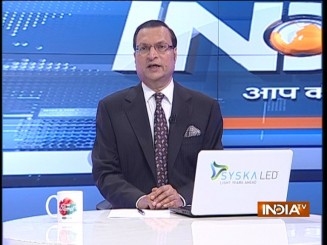 On Wednesday, a group of stonepelters stoned a school bus carrying 30 to 40 kids in Shopian, one of the hotbeds of militancy in Kashmir. Two school children were injured, and one of them was referred to Srinagar hospital because of his critical condition.
On Wednesday, a group of stonepelters stoned a school bus carrying 30 to 40 kids in Shopian, one of the hotbeds of militancy in Kashmir. Two school children were injured, and one of them was referred to Srinagar hospital because of his critical condition.
These are really bad days in the Valley. I can only imagine the pain of the parents who had sent their kids to school. If such incidents happen, every parent in the Valley will fear sending children to school. Stonepelters have no religion. Whenever security forces target militants, these stonepelters appear on the scene and indulge in stonepelting in order to divert the attention of soldiers. This has now become almost standard practice.
Three terrorists were killed in Shopian on Tuesday, and, in retaliation, militants killed three civilians. Their sympathizers pelted stones at a school bus carrying children.
Today I want to ask those who raise the issue of human rights in the defence of stonepelters. How can they defend such an inhuman action? These self-styled advocates of human rights must tell the nation what should be done with the stone pelters who threw stones at children studying in Class Two.
After Wednesday’s stonepelting incident, most of the Kashmiris have started saying that such stonepelters, who defy all canons of human values, have no right to live. By their action, these stonepelters have soiled their hands with the blood of innocent children. Security forces need not handle such stonepelters with a soft approach, but I am worrying about those who will stand up with posters and placards whenever a severe action is taken again stonepelters.
Click Here to Watch Video | Get connected on Twitter & Facebook
Why PM Modi adopts aggressive mode during poll campaigns?
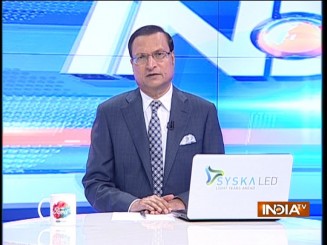 Prime Minister Narendra Modi on Tuesday launched his election campaign in poll-bound Karnataka by daring Congress President Rahul Gandhi to address rallies for 15 minutes without taking help of notes. He also dared Rahul Gandhi to utter the word ‘Vishveshvaraiya’ at least five times publicly. The Congress president while recently addressing an election rally had fumbled while remembering the great engineering icon, on whose birthday Engineers Day is celebrated all over India.
Prime Minister Narendra Modi on Tuesday launched his election campaign in poll-bound Karnataka by daring Congress President Rahul Gandhi to address rallies for 15 minutes without taking help of notes. He also dared Rahul Gandhi to utter the word ‘Vishveshvaraiya’ at least five times publicly. The Congress president while recently addressing an election rally had fumbled while remembering the great engineering icon, on whose birthday Engineers Day is celebrated all over India.
The Congress is worried over the strident posturing of Modi. Some political pundits say, the Prime Minister should be careful about the tone and tenor of his language, while some question why PM Modi becomes so aggressive during poll campaign.
Whenever Modi speaks on stage as Prime Minister, his speeches are well modulated and dignified, but at election rallies, Modi does not speak as a Prime Minister. He speaks as the star campaigner for his party, and there lies the difference.
As a campaigner, Modi adopts a strident language, which can hurt sometimes. Modi attacks Sonia Gandhi and Rahul Gandhi directly, but whenever elections are over, Modi is on record of having said that all leaders should leave behind the bitterness of poll campaigns.
The fact is that, neither he forgets, nor he lets other forget. That is Modi’s speciality, and this puts him apart from other leaders. You will find more and more aggression in Modi’s speeches as the campaign continues in Karnataka.
Click Here to Watch Video | Get connected on Twitter & Facebook
Politics over Lalu Prasad’s discharge from AIIMS
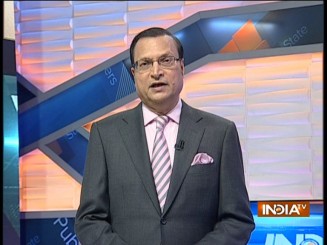 There was drama at the AIIMS hospital in Delhi on Monday, when RJD supremo Lalu Prasad, presently undergoing imprisonment in a fodder scam case, was discharged by doctors and preparations began for taking him in a Rajdhani Express to Ranchi. Lalu Prasad alleged that this was being done as part of what he called “a conspiracy”. There were protests by some RJD workers at AIIMS, and police had to lodge an FIR. Lalu Prasad was taken to Ranchi amidst tight security.
There was drama at the AIIMS hospital in Delhi on Monday, when RJD supremo Lalu Prasad, presently undergoing imprisonment in a fodder scam case, was discharged by doctors and preparations began for taking him in a Rajdhani Express to Ranchi. Lalu Prasad alleged that this was being done as part of what he called “a conspiracy”. There were protests by some RJD workers at AIIMS, and police had to lodge an FIR. Lalu Prasad was taken to Ranchi amidst tight security.
There is no dispute about the fact that Lalu Prasad is unwell and he deserves better treatment. He fell ill in Ranchi, and he was shifted to AIIMS Delhi for treatment. AIIMS doctors now say, Lalu Prasad has recovered and he can be sent back. One should trust the opinion of the AIIMS medical team, because doctors at AIIMS do not take decision under any pressure.
However, a political twist was given when Congress president Rahul Gandhi visited Lalu Prasad in AIIMS on Monday. BJP president Amit Shah and JD(U) leader K C Tyagi reminded about the draft ordinance paper that was publicly tore up by Rahul Gandhi in 2013 during the last days of UPA regime. The ordinance was prepared to negate the Supreme Court verdict which had struck down a provision in electoral law which allowed a convicted MP or MLA to continue in their post if they make an appeal to a higher court within three months. Rahul Gandhi had then described the draft ordinance as “complete nonsense”, and the Union Cabinet of the then PM Dr Manmohan Singh had hurriedly withdrawn the draft ordinance.
The entire drama in 2013 was enacted in order to convey a message to the public on the eve of 2014 Lok Sabha polls that Rahul Gandhi was against corruption and he was not in favour of allowing a convicted MP like Lalu Prasad to contest. The cat was out of the bag later when the then President Pranab Mukherjee revealed that he had already rejected the draft ordinance, and there was no need for Rahul to tear up the draft ordinance paper. Since people were then unaware about the President’s action, the message that went down the line was that Rahul Gandhi was against Lalu Prasad’s corrupt dealings.
Now the times have changed. Since Lalu Prasad is one of the founding members of the opposition front that is taking shape against PM Narendra Modi, and Rahul Gandhi is one of its members, the Congress president has now changed his track, and he went to meet Lalu Prasad in hospital.
Click Here to Watch Video | Get connected on Twitter & Facebook
India, China should join hands to become a world superpower
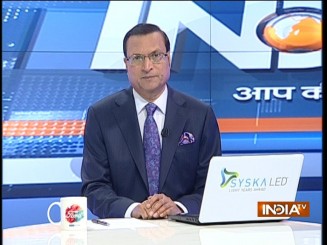 The two-day informal summit between Prime Minister Narendra Modi and Chinese President Xi Jinping at Wuhan on a ‘no agenda’ basis augurs well for India-China relations. In the past four years, there have been several instances of border transgression by the Chinese PLA on the Line of Actual Control, India’s objections to China-Pakistan Economic Corridor that runs through Pak Occupied Kashmir, a disputed territory, and notably, last year’s standoff at Dokalam on Sikkim-China border.
The two-day informal summit between Prime Minister Narendra Modi and Chinese President Xi Jinping at Wuhan on a ‘no agenda’ basis augurs well for India-China relations. In the past four years, there have been several instances of border transgression by the Chinese PLA on the Line of Actual Control, India’s objections to China-Pakistan Economic Corridor that runs through Pak Occupied Kashmir, a disputed territory, and notably, last year’s standoff at Dokalam on Sikkim-China border.
The two leaders are having a freewheeling discussion on issues like trade, border and terrorism. No joint statement will be made nor any joint briefing will take place after this informal summit, but it will lay the foundation of a stable friendship. China is now the world’s largest manufacturer, an economic superpower. It’s military might is no less. China’s economy is five times that of India’s, and it’s military strength is thrice that of India’s. But as former PM Atal Bihar Vajpayee used to say, ‘you can change your friends, but you cannot change your neighbours’. It will be in the interest of both India and China to forge friendship, and this will be beneficial for the entire South Asian region.
One should appreciate Prime Minister Modi’s efforts to improve relations with China. But, on Friday, Congress President Rahul Gandhi, in order to score a political brownie point, raised the issue of Dokalam and reminded the PM about this on his Twitter handle. When the standoff at Dokalam was tense last year, he had met the Chinese ambassador in Delhi. One can have differences on domestic issues, but it has been the tradition in Indian politics, to project a single voice on foreign police matters. It would be better if this tradition is followed. One should welcome PM Modi’s opening remarks at the summit that if India and China work together, they can become a big superpower on the world arena.
Click Here to Watch Video | Get connected on Twitter & Facebook
Sheer negligence caused death of 13 children in Kushinagar tragedy
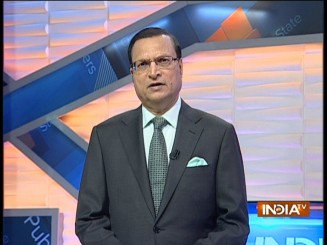 On Thursday morning, a school van packed with children was hit by a passenger train in UP’s Kushinagar district resulting in the death of 13 kids. The driver, it was reported, was busy speaking on his earphone while passing through the unmanned level crossing, and he failed to either notice the oncoming train or listen to the screams of children and passersby. A tragedy of such magnitude took place only because of sheer negligence of the driver, who himself died in the collision.
On Thursday morning, a school van packed with children was hit by a passenger train in UP’s Kushinagar district resulting in the death of 13 kids. The driver, it was reported, was busy speaking on his earphone while passing through the unmanned level crossing, and he failed to either notice the oncoming train or listen to the screams of children and passersby. A tragedy of such magnitude took place only because of sheer negligence of the driver, who himself died in the collision.
Leaders may express sympathy, officials may inquire, action may be taken against a few persons, and people at large may forget this mishap after a few days. But my heart cries out for those parents who lost their children. The government has granted ex-gratia assistance to these families, but this alone cannot mitigate the grief of the parents.
We should all think about how to prevent such accidents. Such mishaps cannot be prevented by making law, or posting staff at railway crossings. We should create awareness about the need to avoid using earphones while driving or walking across railway tracks.
For the last three decades, I have been hearing every Railway Minister promising to do away with unmanned level crossings, and funds are allocated for the same. I do not think this is such a gigantic task which cannot be completed in thirty years. On Thursday, Railway Board chairman Ashwini Lohani said that there were 3,470 unmanned level crossings across India. This figure is only for broadgauge railway tracks. This month, the government in a written reply in Lok Sabha had said that there are more than 7,000 unmanned level crossings. Piyush Goyal is the Railway Minister, and I have no doubts about his efficiency, because as Power Minister he had almost completed electrification of 18,000 villages in India. I hope, as Railway Minister, he will complete this work on a war footing and help prevent such mishaps.
As for the parents and guardians of school children, my suggestion would be that they should keep close watch on such school van drivers. In most of the cases, the drivers do not have valid driving licences, and a few of them drive under the influence of alcohol. If parents notice such things, they should immediately inform the school authorities, and if the latter prevaricate, then they should approach the police.
Click Here to Watch Video | Get connected on Twitter & Facebook
Asaram’s crimes have brought a bad name to the world of saints
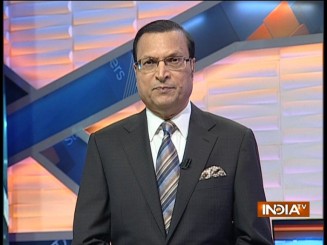 On Wednesday, the trial court in Jodhpur gave life sentence to Asaram and 20 years’ imprisonment each to two of his associates in the rape case of a minor girl from Shahjahanpur, UP. Asaram has been convicted presently only in one case. There is another rape case pending against him in Surat, Gujarat.
On Wednesday, the trial court in Jodhpur gave life sentence to Asaram and 20 years’ imprisonment each to two of his associates in the rape case of a minor girl from Shahjahanpur, UP. Asaram has been convicted presently only in one case. There is another rape case pending against him in Surat, Gujarat.
Like a professional criminal, Asaram tried all illegal methods to get a clean chit. Witnesses were threatened and intimidated, there were attacks on some witnesses, and three of the witnesses died. It was because of these threats and intimidation that the courts, from lower to High Court and Supreme Court, dismissed his bail petitions twelve times. Asaram got a fake medical report made in order to get bail, but the fraud was soon exposed. On the Supreme Court’s order he was admitted to AIIMS, Delhi, where he tried to bribe doctors to get a report in order to facilitate bail, but the doctors reported this to the apex court, and another case was filed against the fake godman.
The thing to ponder over is: how such a man could become a self-proclaimed godman, and how millions of followers revered him as a saint. Asaram was actually running his business in the guise of religion, lands were forcibly acquired in several cities and ashrams were built on these lands. He declared himself as a god having “Brahma Gyan”. But the end was that of a demon like Ravan. The demon king of Lanka had disguised himself as a sadhu in order to kidnap Sita, and in the end he died in the battle against Lord Ram and his ‘golden’ kingdom of Lanka was reduced to ashes.
Asaram is not the lone charlatan disguised as a godman. There are many such charlatans in our society masquerading as godmen. So long as millions of devouts superstitiously believe in such godmen, no law, even the one providing for death penalty, will suffice. People may worship godmen, but they should not do so out of superstition, otherwise such wolves in sheep’s clothing will continue to roam around.
I want to make one point clear. Not all sadhus or saints in our society are like Asaram. Asaram’s criminal acts have defamed the Sant Samaj. There are many sadhus and saints, who selflessly work for the good of the society, and are actually rendering yeoman’s service. They are showing the correct path to society. They play a stellar role in reducing crimes in society. But today’s court verdict against Asaram has surely hurt them. There is the adage: one bad fish spoils the whole pond.
Click Here to Watch Video | Get connected on Twitter & Facebook
At last, good news from Maoist-infested jungles
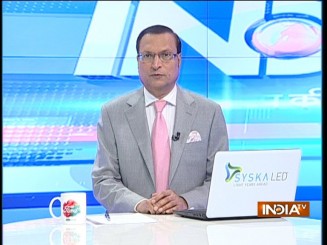 In a major operation on Sunday, C-60 commandos of Maharastra police alongwith CRPF jawans eliminated 37 Maoists in the forests of Gadchiroli bordering Chhatisgarh. They achieved this success after getting intelligence inputs about a secret meeting of Maoist commanders.
In a major operation on Sunday, C-60 commandos of Maharastra police alongwith CRPF jawans eliminated 37 Maoists in the forests of Gadchiroli bordering Chhatisgarh. They achieved this success after getting intelligence inputs about a secret meeting of Maoist commanders.
Those killed include several dreaded Maoist commanders and female Dalam commanders. At last, good news have started coming in about Maoists being eliminated in operations by security forces. Till now, over the last several years, there had been frequent reports of Maoists killing our jawans, and now, the trend seems to have reversed.
This will boost the morale of jawans fighting insurgency in the jungles, and will break the backbone of Maoists. If this trend continues, Maoists will have only two options before them: either to lay down arms and rejoin the mainstream, or to become sitting targets for our security forces.
While the bravery of Maharashtra police commandos need to be lauded, the role played by Home Minister Rajnath Singh cannot be overlooked. When 25 CRPF jawans were killed in Sukma last year, Rajnath Singh had said that he had nothing to say except that the forces will surely take action and the martyrdom of jawans will not go waste. The Home Minister did not say much since then, and today the action speaks for itself.
Click Here to Watch Video | Get connected on Twitter & Facebook